|
Saturdee
Opry Links # 125:
Why tenors?
The tenor of today's edition of Saturdee Opry Links is. . .the
tenor. Not interested? Please enjoy the news instead.
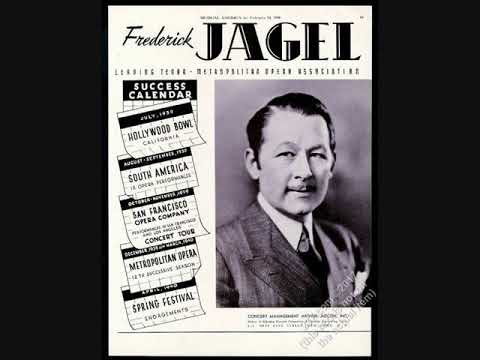
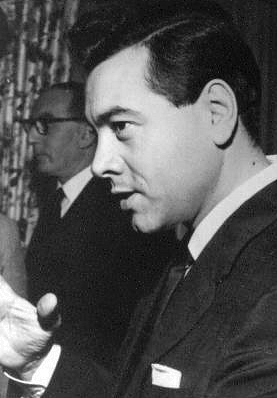
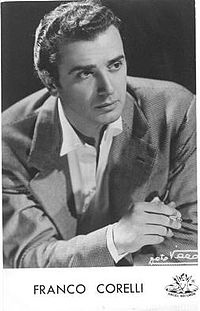
Frederick Jagel
Jagel’s pupil---and one time “substitute," Mario Lanza.
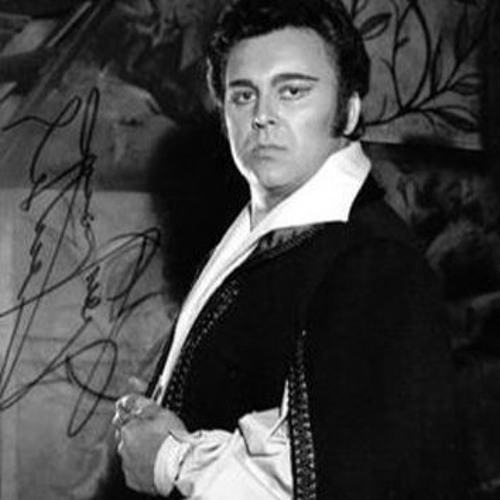
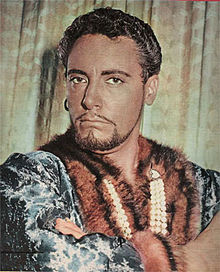
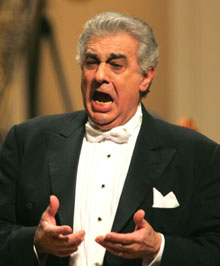
Gianfranco Cecchele
Mario del Monaco
Placido Domingo
Saturdee Opry Links Overture.
The sprightly, zesty, buoyant "Semiramide," by Rossini.
https://www.youtube.com/watch?v=WXP79dH4DHM
1.
What is it about the tenor voice that enthralls (or puts you off, if you
prefer)? Given a classically heroic aria, the tenor---unlike the baritone or
soprano---seems to simultaneously express: heartbreak, longing, angst, resolve,
courage, love, triumph. It's all there, somehow. Can these qualities be
expressed by baritones and sopranos? Of course, but not in the same way, not
with the same oomph. The big tenor voice seems to, by its very nature,
shake its fist at fate. Now, Frederick Jagel was not the greatest tenor who ever
lived, and is largely forgotten today. Yet one can hear what I am talking about
in this performance from 1940 of the aria, "Cielo e Mar," from "La Gioconda," by
Ponchielli. Sometimes these qualities seem all the more present when the singer
is not among "the greatest," as things come with greater effort. Jagel gives his
all with what he has---which is enough---and that's part of the power of the
tenor, as well. "Sky and sea! The airy curtain sparkles like a holy altar. . ."
Setting: The deck of Enzo's ship, 17th century
Synopsis: As Enzo stands watch on his ship, he awaits the arrival of his love
Laura. He sings of the sea and sky around him and his love.
https://www.youtube.com/watch?v=LPVWMguTfJ8&feature=share
Translation:
http://www.aria-database.com/search.php?individualAria=791
2.
Here is one more of the few recordings that the forgotten tenor Frederick Jagel
left behind. Quite in demand in the 20's and 30's, the Brooklyn-born Jagel often
appeared with the greats of his time on stage at the Met, including Ezio Pinza,
Lawrence Tibbett, Rosa Ponselle. In 23 seasons with the Met, he sang 217
performances in 34 roles, finally retiring from performance in 1950. This is the
spectacular tenor essay from "Lucia di Lammermoor," by Donizetti: the cabaletta
(introduction, more or less) "Tombe degl'avi miei" ("Tomb of my fathers"),
followed by the aria, "Fra poco a me ricovero." The former is spectacular, but
should you choose to skip it, the aria proper starts around 3:57. This guy sure
had the goods. You clearly get that sense of qualities unique to the tenor
voice---the ardor, the anguish, the hope, the heroism, all at once. E
stupendo! (Teacher of Mario Lanza, by the way.)
Setting: The Ravenswood cemetary
Synopsis: Edgardo sings of his wish to die in the upcoming duel with Enrico for
he cannot stand to live while Lucia delights in the pleasures of another
husband.
https://www.youtube.com/watch?v=zro-N-OCipI
Translation:
https://www.opera-arias.com/donizetti/lucia-di-lammermoor/fra-poco-a-me-ricovero/
3.
Daniele Barioni had a relatively short career at the Met, from 1956 to '62,
singing 54 roles---all the big tenor parts, from "Calaf" in Puccini's "Turandot,"
to MacDuff in Verdi's "MacBeth." After '62, he appeared with various major
American opera companies, as well in South America and Europe. What happened?
Conflict with the notorious Met director, Rudolf Bing? Vocal decline? There is
no explanation in his on-line bios. Still with us at 90 (2021), Mr. Barioni's
voice was one of tremendous power and a kind of round, creamy tone. Here he is
with a truly astonishing "Non Piangere, Liu" ("Don't cry, Liu"), from "Turandot."
Bear in mind that the high note sung at the end is sustained while the tenor
repeatedly bangs a gong (!). Listen as Barioni gradually builds the note to
heroic proportion---and amazing length. Small wonder the audience bursts into
applause while the opera is still in progress.
Setting: The streets of Peking
Synopsis: After Liú begs him tearfully not to risk his life by playing a deadly
game to win the Princess Turandot, Calaf responds to her gently, asking her not
to weep.
https://www.youtube.com/watch?v=oh1NcDiuA70
Translation:
http://www.aria-database.com/search.php?individualAria=317
More about Mr. Barioni:
https://en.wikipedia.org/wiki/Daniele_Barioni
http://www.historicaltenors.net/italian/barioni.html
4.
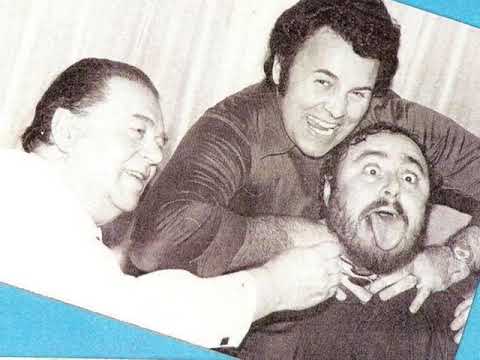
Cecchele tries unsuccessfully to derail the career of Luciano
Pavarotti
True, it takes a tenor aria to bring out the best in a tenor. What? What'd he
say? Of course it does! What I mean is that the phenomenon of the "great tenor
aria" did not always exist in opera, but developed over time. Yes, there are
lovely tenor arias in Mozart operas (late 1700's) and the contemporary composers
of his time. There are also lovely, melodic tenor arias in baroque opera, though
they were competing with mezzo-sopranos in "trouser roles" and the oddly
fetishized castrato (today: "counter-tenor") voice of the period. It was not
until the early 1800s that what we think of as the heroic tenor aria---the
heroic tenor, for that matter---came into being, largely because of the
composers Bellini and Donizetti. Put simply, Vincenzo Bellini pioneered the
long, sustained melodic line in opera---legato---and Gaetano Donizetti greatly
expanded---you could say introduced---the idea of the "big tenor." Here is an
example from Bellini. The aria (technically a cabaletta, or "little aria"), "Meco
all' altar di venere," from "Norma" might sound a bit melodramatic to our ears,
but it was thrilling in its time (1831). The tenor here is the late, and largely
forgotten Gianfranco Cecchele, who would have become a boxer but for his
father's guidance. Cecchele (Cheh-KEL-eh) performed an incredible 2000-plus
performances in his 48-year career, including the Met. (The aria starts at
2:46.) Can you hear a bit of the stuff that made Cecchele want to box, in his
voice?
https://www.youtube.com/watch?v=yBW1a50Kmng
Translation:
https://www.opera-arias.com/bellini/norma/meco-all'altar-di-venere/
More about Cecchele:
http://greatoperasingers.blogspot.com/2012/02/gianfranco-cecchele-great-and-under.html
5.
Okay, just for fun. Seeing as I'm making the case that tenor voices and tenor
arias have unique presence, here is the Aria that Everybody Tries to Sing, and
Usually Shouldn't---from (cough) Michael Bolton to Aretha Franklin (terrible
mistake)---performed by a baritone, a soprano, and then a tenor. Granted, the
soprano here is a second-tier (with wide vibrato), but it still illustrates how
this aria simply does not have the same qualities---heroism, heartbreak,
triumph---that a tenor brings to it. As for the baritone, he is perfectly fine
(though he is a high baritone, which helps), but the oomph and je ne
sai qua of a tenor performing it are simply not present. You with me? "Nessun
Dorma" ("None shall sleep") from "Turandot," by Puccini.
SOPRANO Krystyna Tyburowska:
https://www.youtube.com/watch?v=ztYLDM6YURc
BARITONE Ettore Kim (partial performance):
https://www.youtube.com/watch?v=7ZzACpDYAQs
TENOR Franco Corelli:
https://www.youtube.com/watch?v=Eg-59NoES2o
Setting: The gardens before the walls of Peking
Synopsis: A herald has just announced that no one will sleep in the city of
Peking until the Calaf's name is known to the Princess. Calaf, who knows that he
has agreed to be killed if Turandot learns his name before the morning, is not
worried. He is sure that he will be the only one to reveal his name to the
Princess and he will only do that once morning has come and the Princess has
consented to be his wife.
SOL EXTRA! THE RISE OF THE TENOR
VOICE! HOW IT CAME TO BE. . .
https://riseofthetenor.weebly.com/history.html
6.
Tenor Frederick Jagel was one of the few who could claim to have taught Mario
Lanza (who learned to sing mostly from listening to Caruso recordings.) Here's a
funny story involving Mario and Jagel. Early in his career---at the start,
really---Lanza---U.S. Army Private Alfredo Cocozza at the time---was scheduled
to sing at his army base in Texas. The year was 1943. A highly strung guy with
binge impulses (involving pasta, pretty ladies, and booze, not necessarily in
that order), Lanza was also way out of shape at a whopping 260 pounds. He tried
to get out of the proceedings by pleading sore throat---a common consequence of
Texas climate. Never mind that this would have cost him a gig with a traveling
Army/Air Force revue put together by Peter Lind Hayes. Well, maybe he did have
an "inflamed throat," as he would often say when nerves got the best of him, but
Mario's de facto agent, one Corporal Joe Silver, wouldn't have it. He got a
record of Jagel singing "E Lucevan Le Stelle," from Puccini's "Tosca," stuck a
new label on it with Lanza's name, and gave it to Hayes as an audition!
Bingo---Hayes invited Lanza to join the show, which was called "On the Beam." At
the first tour stop in Phoenix, rumors flourished that Lanza was a fake. Mario,
delighted to be out of Texas, and in good fettle, assayed the same aria that was
on the Jagel record. The crowd was absolutely stunned, and an ecstatic Hayes
told Mario afterward, "You sound even better than you did on the record!" Har!
Jagel's recording of "E Lucevan le Stelle" is not available, but here is Lanza
with it, on stage in London in 1957---and live in 1947. By the way, while on the
subject of the unique power of the tenor voice, Mario used to say that "you have
to sing from your balls." Take that however you wish.
Setting: The ramparts of a fortress
Synopsis: Cavaradossi trades his last possession, a ring, to get a guard to take
a letter to the imprisoned Tosca. As he writes the letter, he sings of his love
for Tosca and for life.
Translation:
http://www.aria-database.com/search.php?individualAria=305
COMPARE AND CONTRAST:
Lanza with the aria in 1957:
https://www.youtube.com/watch?v=-moqF21ljFw
Lanza on stage ten years earlier with the same aria!
https://www.youtube.com/watch?v=4aTiFydFAgM
7.
By the way, the word, "tenor," comes from the latin "tenere," which means "to
hold". In medieval polyphonic music, it was the voice that would sustain the
fundamental line of the song, the cantus firmus. By the sixteenth century, the
“tenor” would be any voice carrying the cantus firmus. As I said earlier, it was
the prolific work of Donizetti in the early-to- middle 19th century that
established the tenore di forza---the powerful, chest-voiced tenor that now fits
the stereotype. This was basically an outgrowth of trends at the time by Bellini
and Rossini to expand overall melodic line, the importance of tenor parts in
opera. Not that you asked. Donizetti, who died young after a terrible,
protracted decline brought on by syphilis, gave a cue to Verdi (just gaining
popularity when Donizetti died), whose bel canto arias for tenor remain among
the premiere specimens in opera today. Here is as far as Donzietti was able to
carry the expansion of the tenor presence in opera---the last aria of his last
opera, "Lucia di Lammermoor." This is "Tu che a Dio spiegasti," which translates
to "Do you want salt on your spaghetti?" What? What'd he say? Here sung by the
great Jose Carreras in his prime.
https://www.youtube.com/watch?v=Mz8tRioI4JY
Setting: The Ravenswood cemetary
Synopsis: After learning that Lucia has died, Edgardo is grief-stricken and
sings to Lucia that he will soon be with her in heaven. Soon afterwards, he
stabs himself and dies beside her body.
Translation:
http://www.aria-database.com/search.php?individualAria=169
8.
Dozens of great tenor arias and passages in Verdi operas, of course. And opera
is not all "hit tunes," by any means, not all "send 'em home, humming." Most
opera is dramatic exposition. You know, the parts you slept through the one time
that someone forced you to attend a performance. Such as this excerpt from "Il
Trovatore," with wonderful Fiorenza Cossotto as Azucena, and the great Placido
Domingo. "Mother, why do you not sleep?" It is difficult to imagine a baritone
expressing the same degree of anguish, worry, love that a tenor does. There is
an insistence, a tension, that a baritone cannot equal. With English subtitles.
Synopsis:
Manrico and his mother, Azucena are awaiting their execution. Manrico attempts
to soothe Azucena, whose mind wanders to happier days in the mountains. At last
the gypsy slumbers.
https://www.youtube.com/watch?v=hdGyiu-owH0
9.
To state the obvious, the gleam and allure of the tenor voice goes well with
soprano---almost unthinkable to have a love duet with a baritone---but
especially, in my amateur opinion, with the darker mezzo-soprano. Here is the
poignant duet, "Si la Stanchezza m'opprime" ("Here, let me rest") from Verdi's
"Il Trovatore." Fiorenza Cossotto is plenty compelling, but wait until her voice
blends with that of Placido Domingo. It's arresting to hear.
https://www.youtube.com/watch?v=u8vdQX8KGwY
Manrico and his mother, Azucena, are imprisoned, awaiting execution. He seeks to
calm and comfort her.
Translation:
https://www.opera-arias.com/verdi/il-trovatore/si-la-stanchezza-m%27opprime/
FINAL BOW:
So which came first, the heroic tenor or the heroic tenor aria? Hell if I know.
Kind of like asking which came first, fast cars or fast drivers. By heroic, I
don't necessarily mean the subject matter so much as the feel of the thing, the
root utterance. A tenor can be declaring love in an opera, or regret, or
self-recrimination, or all of these things at once, and still have that uniquely
tenorial "heroic" aspect. It's a matter of ardor, I suppose, and no other voice
captures that volatile emotion as effectively. Perhaps that comes somewhere near
quantifying what it is about the tenor voice that is singularly compelling. I
don't know the answer. You tell me. Puccini, for my money (a weak boast), wrote
the greatest arias for tenor, and there are probably few who would dispute this.
You can split hairs, and call them the most "passionate," or whatever, but if
the end goal is to move the listener, Puccini is simply the greatest. You want
to argue, it will get you nowhere with me. Here is a brief aria from his "Madama
Butterfly" that calls up some of the various qualities almost automatically
projected by the tenor voice: angst, regret, hope, love, resolve---all at once.
The only thing missing is triumph, because that would be at odds with the
storyline. In point of fact, the aria ends with a declaration of self-loathing,
bitterness. This is "Addio, Fiorito Asil" or "Farewell, flowery isle." Live in
concert with Mario del Monaco.
Setting: Butterfly's house
Synopsis: Pinkerton comes to Butterfly's house and, after speaking to Suzuki,
decides that it would be too painful to say goodbye to Butterfly directly. He
bids farewell to the house in which he and Butterfly spent many happy hours. His
infatuation with her---possibly love---and his enchantment with Japan, are not
enough to keep him there to fulfill his promise to her, and he leaves for
America. Conflicted, torn, despising himself. Which, coincidentally, is how I
feel in the morning!
https://www.youtube.com/watch?v=XS4Z9ESGJKE
Translation:
https://genius.com/Andrea-bocelli-addio-fiorito-asil-englisch-lyrics
Saturdee Opry Links Encore!
Franco Corelli suffered from great nerves, but once he was on stage, it was
channeled into adrenalin. You can almost hear it happen in this performance of "Che'lla
mi creda," from "The Girl of the Golden West," by Puccini.
https://www.youtube.com/watch?v=zGki6hAcXFQ
Setting: a forest at the foot of Cloudy Mountain, USA, 1849-50
Synopsis: Johnson is about to executed for his crimes committed as Ramerrez. He
explains his final wish passionately : that Minnie think that he was freed and
never know his actual fate.
Translation:
http://www.aria-database.com/search.php?individualAria=717
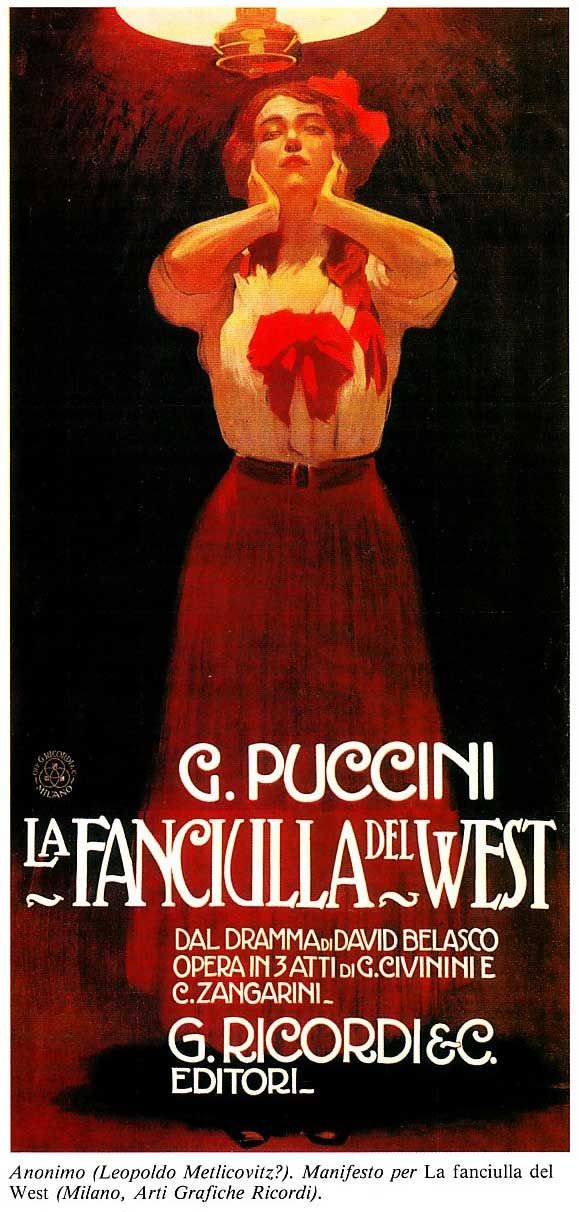
Back to Opera Links
Back to Home Page
|



